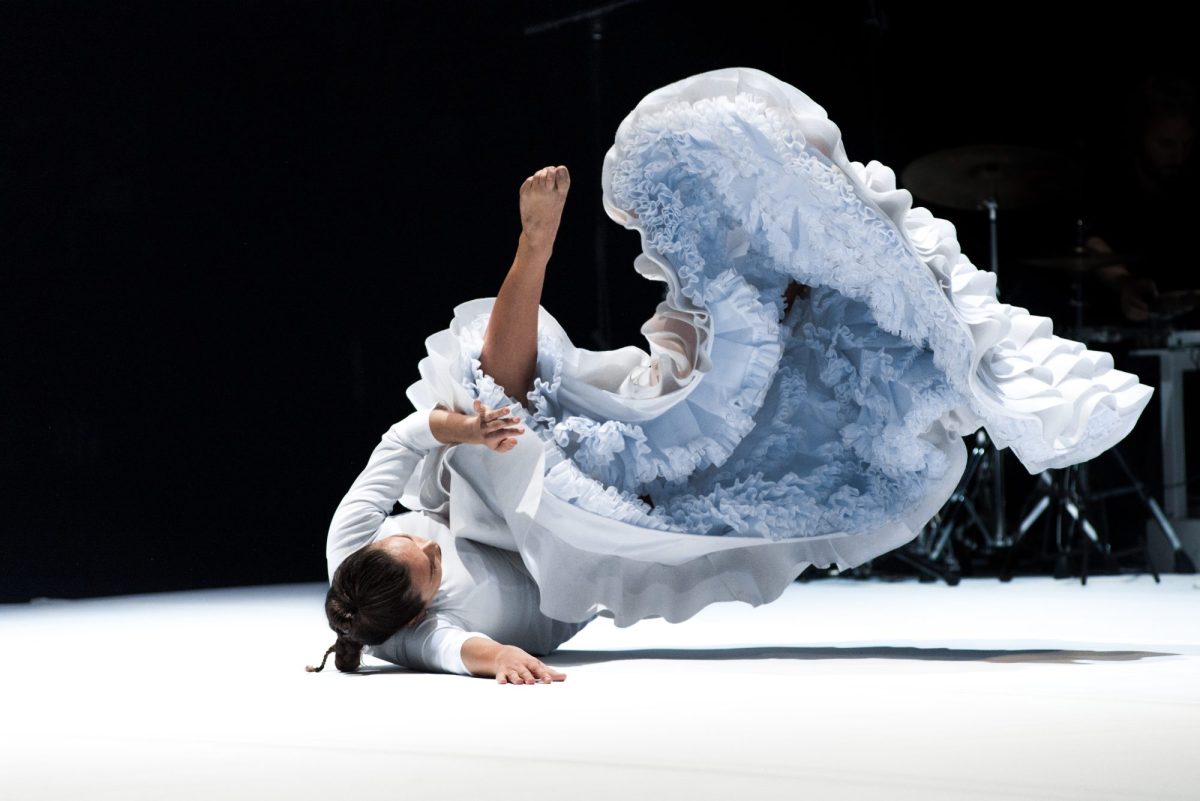Flamenco embodies a subcultural/intercultural/counter-cultural form of resistance against authoritarianism. Its origins lie in Moorish Spain which saw a fusion of Andalusian, Arab and Sephardic Jewish cultures, with the crucial addition of Romani culture, which came from northern India via Persia (the racist term gitano like its English equivalent ‘gypsy’ derives from a mistaken identification with ‘Egyptians’).
All these influences can be heard in the songs – especially the laments, but also the livelier cantes chicos – as well as the modal scales, rhythms and instrumentation (especially the bells and castanets). It’s also visible in the dance movements, which resemble traditional Indian dance in the stiff upper bodies, precise and graceful arm and hand movements, rapidly stamping feet and flashing eyes.
Flamenco smouldered as an underground tradition – especially in caves and bars – after the Christians drove out the Muslims, forced the Jews to convert or flee, and persecuted the Romani; it became associated with outcasts and vagabonds. After a brief efflorescence in the 19th and early 20th century (thanks to progressive nationalist artists and intellectuals like Federico García Lorca and Manuel De Falla) it was suppressed by the Franco dictatorship or tamed and commercialised for tourists, but it remains a living tradition, both authentic and inherently mongrel.
Rocío Molina subverts and transgresses the traditional gender roles and rules of flamenco, as well as of Spanish and more broadly Christian patriarchal culture (she’s also a queer woman, who had a child through IVF). The title of the show means ‘fallen from heaven’, and there’s a strong sense that the agony and ecstasy of being a woman is being deconstructed, along with the polarities of heaven and earth, angel and human, male and female, gay and straight, personal and political, comedy and tragedy. The spirit of Frida Kahlo is never far away.
The show took place on a white floor, with an upstage screen featuring a projection of the moon in various stages – except for one indelible sequence when it showed live-feed video of Molina as she dragged herself across the stage in a blood-soaked skirt leaving a red-brown trail behind her.
Her other costumes included a frilly white dress with an impossibly long train, full nudity with breasts and vulva covered by her arms and hands, a gold waistcoat and matador-style tracksuit pants with braces and black shoes, bondage gear with a crisp packet attached to the crotch (which she dipped into and ate from), and a sports bra and boy-leg undies stuffed with flowers (which she wore in the closing sequence when exuberantly dancing into the auditorium and throwing flowers to members of the audience).
The four-piece all-male band featured an acoustic and electric flamenco guitar player (Oscar Lago), a flamenco singer and bass player (Kiko Peña), a percussionist and flamenco hand-clapper (José Manuel Ramos “Oruco”), and a drummer and synth player (Pablo Martin Jones). All are superb musicians (the flamenco singing, guitar and hand clapping were especially thrilling); the music ranged from traditional flamenco to thrash-metal. They also playfully teased or gently assisted Molina at various points: eating crisps without sharing them or washing the blood from her legs.
But this was really all about Molina’s dancing and choreography, which ranged from slow, Butoh-like movement sequences when she slowly leaned and almost toppled from side to side in the white dress with the train before settling and reclining on the floor like a mermaid with a tail, or dragged herself across the floor in the blood-soaked skirt; to horse-like circling, masculine hip-thrusting or rapid-fire stamping and clicking in the matador outfit; to clowning around flamenco-style in the bondage gear with the crisp packet; or standing motionless like Botticelli’s Venus when nude, or Christ-like when having her feet washed, or like Botticelli’s Flora when having her underwear festooned with flowers.
Read: Exhibition review: Middle of a Moment: Aki Onda, The Substation, Asia TOPA
Above all, it was about watching her dancing flamenco, in whatever costume or persona, being transported by her incredible technique, and witnessing her entering the trance-like state of duende; because if choreography is about resistance, then dance itself – when it reaches that state – is about revolution.
Caída del Cielo (Fallen from Heaven) was performed from 28 February to 3 March 2025 as part of Adelaide Festival.

